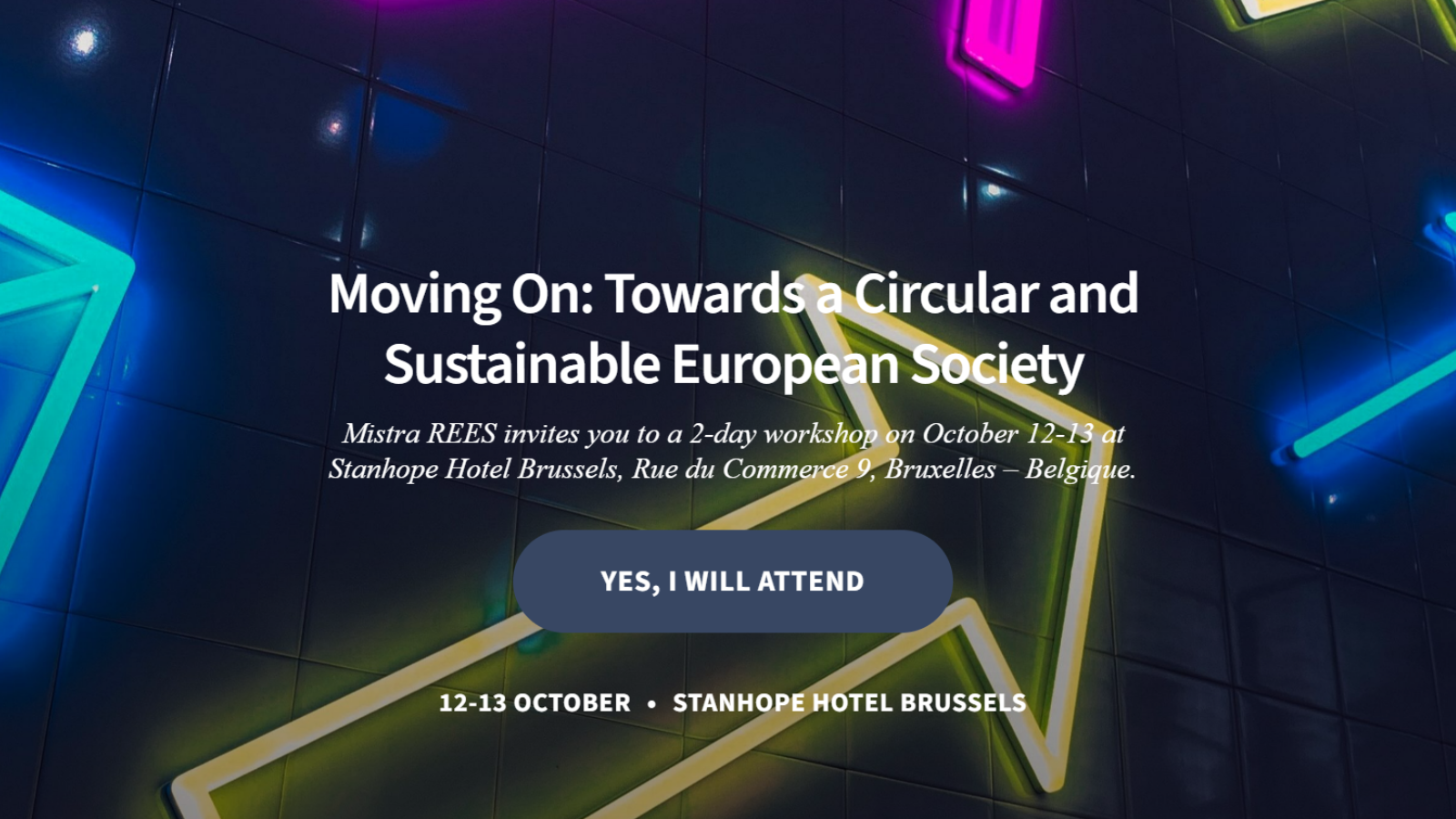
Moving on: towards a circular and sustainable European society
The MISTRA REES research program is organising a 2-day in-person workshop on 12 and 13 October about the circular transition from an industry perspective in Brussels. Several experts, both from industry as well as from academia, will discuss developments in policies, standards and business models.
An industrial transition is a necessary part to shift to a more circular and sustainable society. Such a transition is necessary to reach environmental and climate objectives and realise the vision of a Circular Economy and at the same time enable and accomplish a reindustrialisation of Europe. This transition will require that several preconditions are in place, including a well-designed regulatory framework, the right economic incentives, the development of circular business models, improved product design and new developments in standardisation.
Mistra REES and their partners will chair interactive workshops devoted to this transition.
You will have the opportunity to listen to industries and experts discussing developments in policies, standards and business models and contribute to the discussion.
12 October 2023
- 10:00-17:00 Policies and standards
- 17:00-18:30 Mingle and networking
13 October 2023
- 10:00-12:00 Design and business models – a key for a CE-transition success
13:00-14:30 Assessment to secure a CE-transition success
15:00-17:00 Outlooks and ways forward
17:00-18:30 Mingle and networking.
Please find the detailed program attached. Participation is free, but registration is mandatory via this link.
The Mistra REES research program is a collaboration between leading academic environments, industrial companies and societal actors with the aim of creating knowledge about more resource-efficient and effective solutions (REES) based on a circular economy. The research has been ongoing since 2015, and behind the initiative is a consortium of three universities – Linköping University, Lund University and Chalmers – as well as a number of small and large companies. Since December 2019, the research program’s focus has been expanded to also include financial analysis and business economics aspects of the circular shift.
The circular transition is one of the priorities of ERRIN's Bioeconomy Working Group which is also closely following the Circular Cities and Regions Initiative (CCRI) in which several ERRIN members and the ERRIN Secretariat are involved in.
- 12/10/2023 - 09:30 - 13/10/2023 - 18:30
-
Stanhope Hotel Brussels
Rue du Commerce 9
1000 Brussels
Belgium - Astrid Hannes
-
Member
-
Working Group